A THOUSAND DEER
ELLEN AND EDWARD RANDALL SERIES
BOOKS BY RICK BASS
FICTION
The Watch: Stories
Platte River
In the Loyal Mountains
The Sky, the Stars, the Wilderness
Where the Sea Used to Be
Fiber
The Hermits Story: Stories
The Diezmo
The Lives of Rocks
The Blue Horse: A Novella
Nashville Chrome
NONFICTION
The Deer Pasture
Wild to the Heart
Winter: Notes from Montana
The Ninemile Wolves
The Lost Grizzlies
The Book of Yaak
The New Wolves
Caribou Rising
Brown Dog of the Yaak
The Roadless Yaak (Editor)
Colter: The True Story of the Best Dog I Ever Had
Why I Came West: A Memoir
Falling from Grace in Texas (Coeditor, with Paul Christensen)
The Heart of the Monster (with David James Duncan)
The Heart Beneath the Heart
In My Home There is No More Sorrow: Ten Days in Rwanda
The Black Rhinos of Namibia
A THOUSAND DEER
Four Generations of Hunting and the Hill Country
RICK BASS
UNIVERSITY OF TEXAS PRESS  AUSTIN
AUSTIN
Copyright 2012 Rick Bass
All rights reserved
Printed in the United States of America
First edition, 2012
Requests for permission to reproduce material from this work should be sent to:
Permissions
University of Texas Press
P.O. Box 7819
Austin, TX 78713-7819
www.utexas.edu/utpress/about/bpermission.html
Library of Congress Cataloging-in-Publication Data
Bass, Rick, 1958
A thousand deer : four generations of hunting and the Hill Country / Rick Bass.
p. cm. Ellen and Edward Randall Series
ISBN 978-0-292-73795-2 (cloth : alk. paper)
ISBN 978-0-292-73796-9 (e-book)
ISBN 978-0-292-74360-1 (individual e-book)
1. Bass, Rick, 1958 2. Big game huntersTexasBiography. 3. Deer huntingTexasHistory. 4. Deer huntingTexasAnecdotes.
I. Title.
SK17.B38A3 2012
799.2'765092dc23 [B]
2012020594
CONTENTS
A THOUSAND DEER
M Y NATURALIST MOTHER
As with the best of gifts, the recipient did not even recognize the gift as such until long years after the giving. Im pretty sure that when I was growing up in Houston in the 1960s my mother did not keep a tally, an internal registry, called Nature Quota or Things to do Outside Each Day for the Betterment of My Children. Instead, paying attention to natureand I think she would have defined the term nature as any and all living things beyond ones selfwas simply how she lived her life. She did so with a passion and vitality that was contagious, whether commenting on whatever bird had just arrived to spray seed from the backyard feeder, or naming the different gray and fox squirrels that patrolled the suburban yards and littered the driveways and sidewalks with sharply gnawed fragments of hickory nuts that pierced the feet of barefooted walkers. She supported enthusiastically my boyhood predilection for keeping as pets whatever bayou creatures I could captureslender grass snakes, bewitching with their emerald sheen, giant bullfrog pollywogs, their bulbous heads seeming to suggest a cetacean intelligence, prehistoric soft-shelled turtles, pancake-shaped with pale bellies and periscope necks. Freshwater crawfish, nine-lined skinks, box turtles, catfish, topwater minnows, rams horn snails: it must have seemed that at some point every creature in the kingdom of life had passed through and lived temporarily in our home, and from this parade, my mother impressed upon me the habit not just of looking beyond ones self, but also of being stimulated and enthused by what the worldthe natural worldhad to offer.
This was not a message or ethos that was preached by her, but instead, one she lived by example; it was simply how she inhabited the worldone of the ways she loved the worldand when you love something, you want to share it. This is an obvious but important distinction: the fact that she didnt arise each day with a parenting checklist, but instead brought me to nature more organically, without the pressure of agenda or correct or incorrect answer.
Naturewild naturewas going away then, too, as it is now, but I think we lived in that last time of grace before the full foreknowledge of the rates of extinctions and loss had become a part of our consciousness. Folks like myself are sometimes guilty of saying things like I wish Id been born a hundred years earlier, or How I would have liked to have seen this country when it was young and whole and strongbut the truth is I cant really complain. I had it pretty good.
In retrospect, from a natural history perspective, I think I got to inhabit the last good childhood unfreighted by that degree of awareness of lossthat she and I got to inhabit it togetherand Im grateful to her, and consider myself lucky, even if possessing also the bittersweet guilt of the survivor. I must confess that these days I do not always follow my mothers model, and when I show my daughters some aspect of nature, whether sublime or subtle, I often do so with that confusion of self-awareness: wondering, is this somethinga warbler, a certain glacier, the sound of a snipe in springthat they will be able to share with their children? Knowing, sometimes, that the answer well may be Perhaps not.
I understand or believe that there are genetic dispositionspre-existing circuitries that might illuminate in the midst of the natural worldand that surely my mothers (and my fathers) and mine were wired from birth for such ignition. But brain research is showing that equally powerful neural pathways can be built in the brain for such things even if none exist at birth. With regard to my own naturalists upbringing, then, I believe I got a double dose. Surely there were days of my suburban childhood that passed without some contact with nature, but if such days existed, they have been scoured clean in my memory by the eradicating winds of time.
What I do remember is the excitement of discovering any animals tracks in the backyard, and of how we would spend hours mixing up a plaster of paris cast, and, subsequently, a wax imprint. Decades later, I would see such plaster imprints in the offices of wildlife biologistscasts from the immense feet of grizzlies, wolves, mountain lionsand I would feel a kind of immediate kinship, irrespective that my own childhood quarry had been basset hound, opossum, raccoon. The specificity of detail preserved in those casts was no less present in the filigree of pad, the wrinkled delicate underfeet of the suburban raccoon than in the tufted toepads of Canadian lynx.
What it was like, back thenI remember this nowis that there was a glow that would heat up and incandesce in my mind when I saw these things, and when I engaged with them and with that outside, natural world, which was only half a step farther than the interior life of my mind.
Back then, I was not aware of such illuminationthe blaze of those existing pathways surging with the recognition of attachment, the match and fit of their desire and the sculpted world beyond, as well as the burning of new pathways across the not-yet mapped territory of my boyhood brainbut looking back now, I can see that that was how it must have been.
I am not willing to admit yet that my middle-aged brain has grown darker or sealed over with the plaque and detritus of sediment, minutiae, and, perhaps worst of all, the dross of familiarity, when in truth there is still so much in the world that by all rights should be every bit as mysterious to me now as it was then. In the looking-back, though, it seems to me that in my vision of that boy-in-nature, I see the light of his mind glowing even in the darkness of nightfall, lit like a burning lantern.
Next page
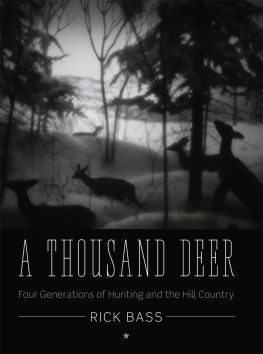
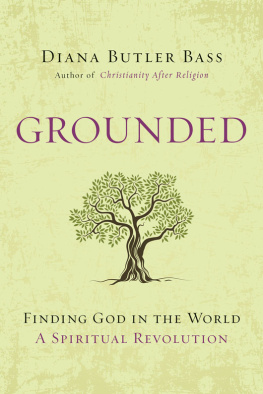
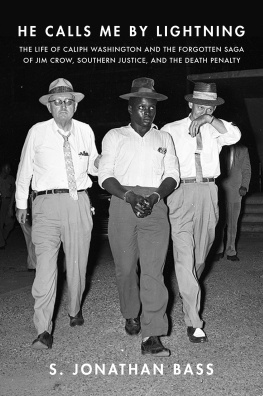
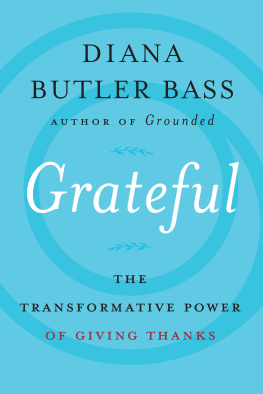

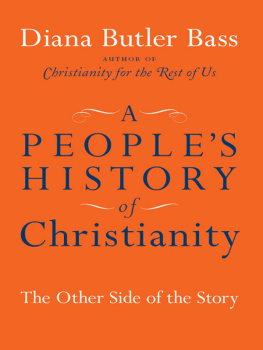
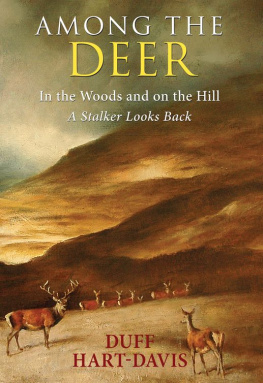
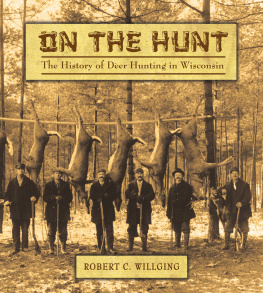
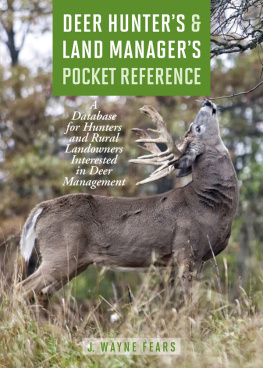
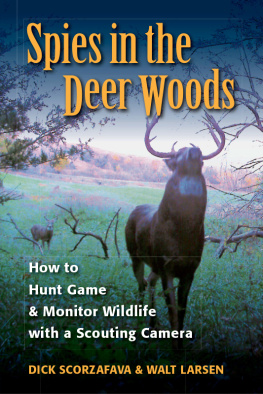
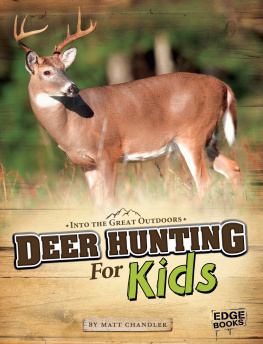
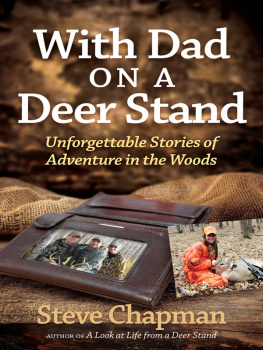

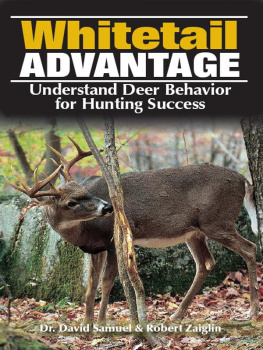

 AUSTIN
AUSTIN